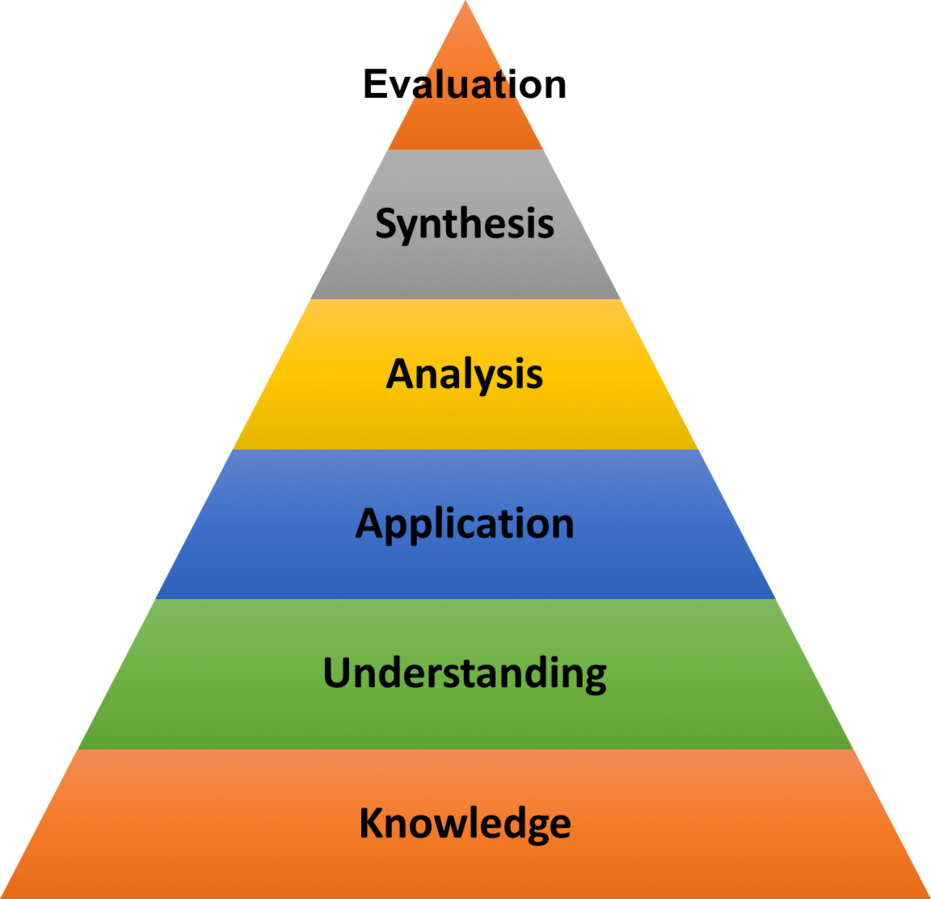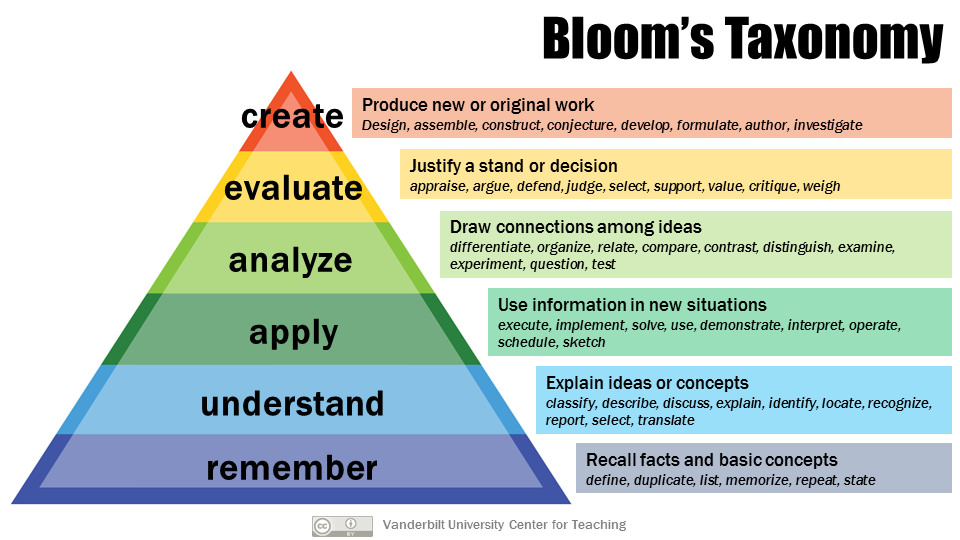Setting Learning Goals in Special Libraries
Lauren Hays
In our work, we often need to build educational sessions that include specific learning goals, but how do we know if a person understands or learns what we are trying to teach? How can they demonstrate that they met the learning goal?
To answer these questions, we must create learning goals that are measurable. In other words, we should consider how to develop learning goals that explicitly tell us if the session attendees learned what we are teaching. This leads to the question, how do we create learning goals that are measurable?
To create measurable learning goals, I recommend using verbs aligned with Bloom’s taxonomy. Bloom’s taxonomy is a framework for organizing educational goals created by Benjamin Bloom and colleagues. Originally, the framework had six categories (see below). At the base of the pyramid was knowledge and at the top was evaluation. Bloom created this framework to show how learning moves from simple (i.e. gaining knowledge) to complex (i.e. being able to evaluate information).

Image licensed under: CC BY-SA 4.0
https://commons.wikimedia.org/wiki/File:Blooms-pyramid.png
In the early 2000s, a group of researchers updated Bloom’s taxonomy with new category names that can be seen in the image below. In addition to the revised names, the researchers specified verbs that go with each category. These verbs describe what learners should be able to do when they reach that level of learning.

This revision of Bloom’s taxonomy is particularly useful to our work in libraries. When we are leading training, working with new hires, leading a session on research strategies, or doing something else that involves education, we can use Bloom’s taxonomy to write learning goals that are measurable. With measurable learning goals, we can determine if our teaching has been successful.
To write measurable learning goals start with the same stem: Attendees will, Learners will, etc. Then, select a verb that aligns with where you expect learners to be on Bloom’s taxonomy. If you expect learners to be at the remembering stage you will want to use words such as recall, list, or memorize. If you expect learners to be able to create, then you will want to use words such as design, develop, or investigate. For example,
Attendees will define…
Attendees will classify…
Attendees will select…
Finish the learning goal with what you want learners to do. For example,
Attendees will select the appropriate database for the information need.
Attendees will judge the reliability of information.
Attendees will recall where to locate the databases.
From here, you can build activities where learners select, judge, and recall (or whatever action verb you selected) to demonstrate their learning. These activities aligned with your learning goals will help you know if your teaching has been successful.
Lauren Hays
Lauren Hays, PhD, is an Assistant Professor of Instructional Technology at the University of Central Missouri. Please learn more about Lauren and read her other posts about skills for special librarians; then take a look at Lucidea’s powerful ILS, SydneyEnterprise, used daily by innovative special librarians.
Similar Posts
Teaching about AI in the Workplace
Suggestions for special librarians from Claude on how to foster cross-generational AI learning communities in the workplace.
Keeping up with AI…
Resources for staying current on the quickly changing AI landscape from a library expert.
Interview with Lesley Farmer about SLA’s Information Outlook
Interview about the rebirth of SLA’s Information Outlook as a quarterly online publication with interview with Professor Lesley Farmer
Ways I Have Been Using Generative AI
Generative AI can be used in many ways as part of a typical workflow; examples and thoughts about what the future holds




Leave a Comment
Comments are reviewed and must adhere to our comments policy.
0 Comments